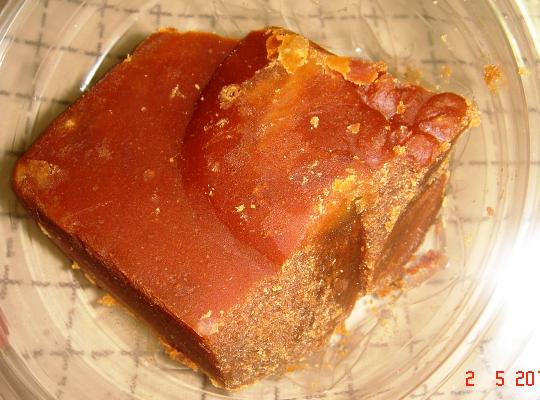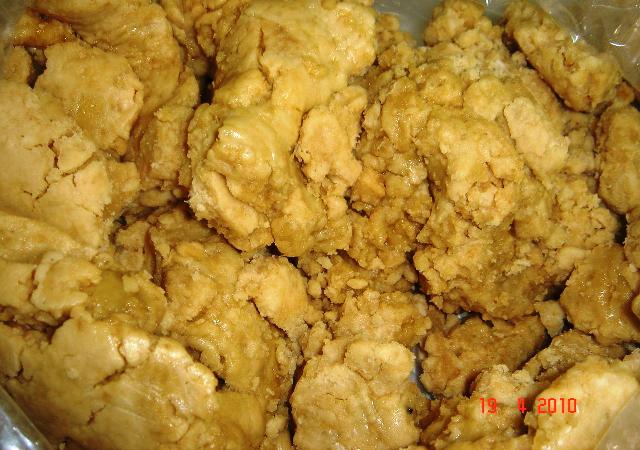Search
Main menu
- Home
- About us
- Online courses
- Tibb-e-Nabawi diet
- Diseases & Remedies
- Healing by Yaqeen
- Healing by Saalehaat
- Dua for Fear & Insomnia
- Dua for Extinguishing FIRE
- Fatihah even for Non-Muslims
- Ruqyah for General Sickness
- Ruqyah for Namlah (Sores)
- Ruqyah for Pains
- Ruqyah for Scorpion's Sting
- Ruqyah for Ulcers
- قُرْآنٌ / Quran
- فاتــحــة الكــتاب / Fatihah-al-Kitaab
- Sadaqah ~ Charity
- Salaat / Prayer
- Saum / FAST
- Healing by Hijaab
- Healing by Foods
- General Principles
- Zabeehah Rules
- The Healing Beverages / Drinks
- Foods ~ From Alif ( أ ) to Baa ( ب )
- Foods ~ From Taa ( ت ) to Raa ( ر )
- Foods ~ From Zaa ( ز ) to Ain ( ع )
- زبـــد / Zubd / Butter
- زنـــجبـــيل Zanjabeel / Ginger
- زَيْتٌ / Zait / Olive Oil
- ســـفرجـــل / Safarjal / Quince
- سِلـق / Silq (Beetroot)
- ســـمــك / Samak (Fish)
- سَمْن / Sam'n / Ghee
- شـــحـم / Sha'hm / FAT
- حنــيذ / شواء / Shiwaa' ~ Haneez
- طــلـــح / Tal'h / Bananas
- عـــدس / Adas (Lentils)
- عــســل / Honey
- عــنب / Enub / Grapes & Zabeeb
- Foods ~ From Qaaf ( ق ) to Yaa ( ى )
- Healing by Herbs
- Healing by Hijamah
- Prophet's Guidance
- Modern ailments
- Formulations
- Recipes
- Blessed Foods / Drinks
- Breakfasts
- Barley Soups
- BARLEY Cakes
- Cottage Cheese / Yogurt recipes
- Fish, Meat & Poultry
- Fruit Ice Creams
- Hais ~Kalaqand / Halwah recipes
- Pickles, Chutneys & Molasses
- Veggies / Lentils / Rice in Olive Oil
- Beetroot Pulao
- Camel's Qeema Pulao
- Red cabbage Pulao
- Bell Peppers in Olive Oil
- Bell Peppers stuffed with Kebabs
- Bitter Gourd in Olive Oil
- Black eyed peas with Beetroot
- Cauliflower in Olive Oil
- Oven Baked Vegetables
- SAAG with Olive Oil
- Sweet Potato Cutlets
- Sweet Potatoes in Olive Oil
- White Beans with Spinach
- Camel's meat Pulao with Red Rice
- Cooking with Olive Oil
- Halal Vinegar Technology
اللَّهُمَّ اجْعَلْنِي صَبُوراً، واجْعَلْني شَكُوراً، واجْعَلْني في عَيْني صَغيراً وفي اعْيُنِ النَّاسِ كَبيراً
Qasab As-Sukkar (Sugarcane)
قَصَبُ السُّكَّرِ: السكر حادث لم يتكلم فيه متقدِّمو الأطباء، ولا كانوا يعرفونه، ولا يَصِفونه فى الأشربة، وإنما يعرفون العسل، ويُدخلونه فى الأدوية. وقصبُ السكر حارٌ رطب ينفع من السُّعال، ويجلو الرطوبةَ والمثانة، وقصبةَ الرِّئة، وهو أشدُّ تلييناً من السكر، وفيه معونةٌ على القىء، ويُدِرُّ البَوْل، ويزيد فى الباه. قال عفان بن مسلم الصفَّار: مَنْ مَصَّ قصبَ السكر بعد طعامه، لم يزل يومَه أجمعَ فى سرور.. انتهى.وهو ينفع من خشونة الصدر والحلق إذا شُوِىَ، ويُولِّد رياحاً دفعُها بأن يُقشَّرَ ويُغسل بماء حار.والسكر حارٌ رطب على الأصح، وقيل: بارد. وأجودُه: الأبيض الشفاف الطَّبَرْزَد، وعَتيقُه ألطفُ من جديده، وإذا طُبِخَ ونُزِعَتْرغوتُه، سكَّن العطشَ والسُّعال، وهو يضر المَعِدَة التى تتولَّد فيها الصفراءُ لاستحالته إليها، ودفعُ ضرره بماء اللَّيمون أو لنارَنْجِ، أو الرُّمان اللفَّان
وبعضُ الناس يُفضِّلُه على العسل لقِلَّة حرارته ولينه، وهذا تحامل منه على العسل، فإنَّ منافع العسل أضعافُ منافع السكر، قد جعله الله شِفاءً ودواءً، وإداماً وحلاوةً، وأين نفعُ السكر مِن منافع العسل: مِن تقويةِ المَعِدَة، وتليين الطبع، وإحدادِ البصر، وجِلاءِ ظُلمته، ودفعِ الخوانيق بالغرغرةِ به، وإبرائِهِ من الفالج واللَّقْوة، ومِن جميع العلل الباردة التى تَحدُث فى جميع البدن من الرطوبات، فيجذِبُها من قعر البدن، ومن جميع البدن، وحفظِ صحته وتسمينه وتسخينه، والزيادةِ فى الباه، والتحليلِ والجِلاءِ، وفتح أفواهِ العروق، وتنقيةِ المِعَى، وإحدارِ الدُّود، ومنعِ التخم وغيره من العفن، والأُدم النافع، وموافقةِ مَن غلب عليه البلغمُ والمشايخ وأهلِ الأمزجة الباردة.. وبالجملة: فلا شىء أنفعُ منه للبدن، وفى العلاج وعجز الأدوية، وحفظِ قواها، وتقويةِ المَعِدة إلى أضعاف هذه المنافع، فأين للسُّكَّرِ مثلُ هذه المنافع والخصائص أو قريبٌ منها ؟
The word "SUKKAR" (sugar) is mentioned in a Hadith as under :
جاء في جامع الترمذي من حديث ابي هريره رضي الله عنه قال: قال رسول الله صلى الله عليه وسلم : يخرج في آخر الزمان قوم يختلون الدنيا بالدين ويلبسون للناس مسوك الضأن من اللين السنتهم احلى من السكر وقلوبهم قلوب الذئاب . يقول الله عز وجل : أبى يغترون ؟ أم علىّ يجترءون ؟ فبى حلفتُ لأبعثن على أولئك منهم فتنة تدع الحليم منهم حيران
Ibn al-Qayyim wrote : In the collection of Jami' at-Tirmidhi, it is narrated from Abu Hurairah (may Allah be pleased with him) that the Messenger of Allah صلى الله عليه وسلم said: "In the last days, a group of people will appear who will use religion to gain worldly benefits. They will wear sheep’s clothing to appear gentle before people, but their tongues will be sweeter than sugar, and their hearts will be like the hearts of wolves. Allah Almighty says: 'Are they deceived by Me? Or do they dare to defy Me? By Myself, I swear that I shall send upon them a trial that will leave the wise (soft-hearted) among them bewildered.'"
Sugar was unknown to the early physicians; they did not discuss it, nor did they include it in their medicinal drinks, as they only knew and used honey in remedies. Sugarcane is warm and moist and is beneficial for coughs; it clears phlegm from the bladder and the respiratory passages, particularly the trachea, and is more laxative than processed sugar. It also aids in inducing vomiting, promotes urination, and increases virility. 'Affan ibn Muslim al-Saffar said, "Whoever sucks on sugarcane after a meal will remain joyful throughout the day." When roasted, it helps soothe roughness in the chest and throat, but it produces gas that can be alleviated by peeling and washing it in hot water.
Sugar is generally considered warm and moist, although some say it is cold. The best type is the clear, white "Tabarzad" variety, and older sugar is gentler than fresh. When cooked and its foam is removed, it soothes thirst and cough. However, it may harm a stomach that tends to produce bile, as sugar is transformed into bile. This harm can be mitigated with lemon water, sour oranges, or sour pomegranate juice.
Some people prefer sugar over honey due to its lower heat and gentleness, but this is unfair to honey, as honey has multiple benefits that surpass those of sugar. Allah has made honey a healing, a remedy, a nourishment, and a sweetness. Where is the benefit of sugar compared to the benefits of honey, such as strengthening the stomach, easing bowel movements, sharpening vision, clearing eye cloudiness, relieving throat constriction through gargling, treating paralysis and facial palsy, and curing cold-related ailments that occur throughout the body due to excess moisture? Honey draws these humors from the depths of the body, preserves health, fattens and warms the body, increases virility, cleanses and clarifies, opens blocked blood vessels, purifies the intestines, expels worms, prevents indigestion and decay, and is an effective food that benefits those prone to phlegm, the elderly, and those with cold temperaments. In short, there is nothing more beneficial to the body than honey in preserving health, enhancing energy, and strengthening the stomach, providing manifold benefits that far exceed those of sugar.
Ibn al-Baytaar wrote : According to Abu Hanifah, sugarcane comes in various types: white, yellow, and black. The black variety is not typically pressed due to its thickness and size, making it hard to hold with two hands. Only the white and yellow varieties are commonly pressed, and their juice is known as "sugarcane honey." The best quality is brought from the land of the Zanj, where it has a yellow color resembling citron. Qand is the solidified extract of pressed sugarcane, which is then processed into sugar. When qand is mixed with other ingredients like flour, it is called Maqnood or Muqand, similar to how M’assul or M’assal refer to mixtures with honey.
Al-Dimashqi describes sugarcane as a light and suitable food for the body, beneficial for alleviating chest, lung, and throat dryness. It helps clear mild mucus, promotes urination, and can cause bloating, especially when consumed after meals. Sugarcane acts as a mild laxative.
Al-Mansuri notes that sugarcane has a mild warmth, promotes urination, soothes burning sensations during urination, and is very beneficial for cough.
Ishaq ibn Imran mentions that its moisture and smooth texture help soothe stomach inflammation and cleanse the bladder effectively.
Ibn-e-Sina wrote: Sugarcane is similar in nature to sugar but is even more softening. Sugar is cold in its early stages and moist. Aged sugar becomes drier, and as it ages further, it becomes more refined & softer in its effects. It is soothing, cleansing, and has the ability to detoxify. The Suleimani sugar (a type of refined sugar) is even more soothing, especially in its crystallized form. Both sugarcane syrup and sugar are known for their cleansing and purifying properties.
Eye Health (أعضاء العين): Sugar extracted from sugarcane helps in clearing the eyes.
Chest Health (أعضاء الصدر): Sugar helps soothe the chest and reduces its roughness.
Digestive Health (أعضاء الغذاء): Sugar is good for the stomach, but it may harm those who have excess bile or yellowing due to its conversion into yellow bile. It is useful for clearing blockages in the body and increases thirst more than honey does, especially aged sugar. Aged sugar can produce murky blood but helps clear phlegm from the stomach. Sugarcane can also induce vomiting.
Intestinal Health (أعضاء النفض): Sugar helps ease bowel movements, especially varieties like Suleimani or red sugar, which are more soothing and have a stronger softening effect. It can also reduce bloating or relieve gas when used with almond oil, making it beneficial for colic.


 Online Guests
Online Guests
We have 160 guests and no members online

